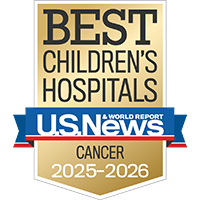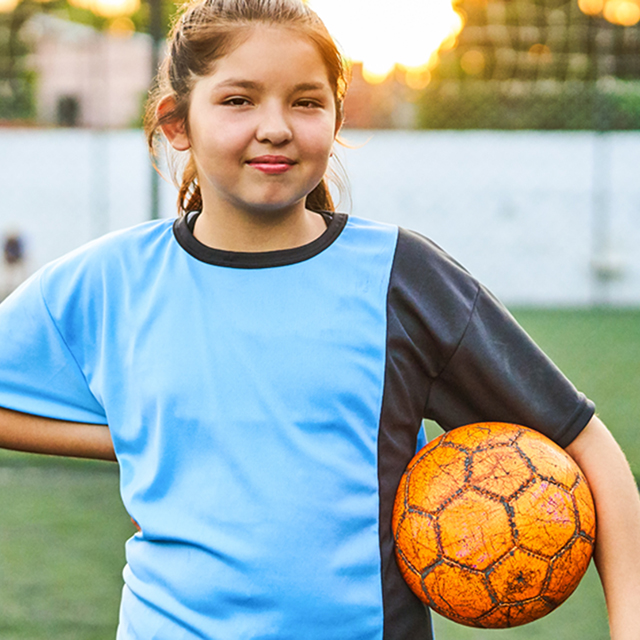Saving future lives
500+ UCSF investigators are researching cures for hundreds of childhood and adult diseases.


Osteosarcoma is the most common type of pediatric bone cancer. It begins in the cells that form bone and can develop in any bone, though the tumors are typically found in the bones just above and below the knee and in the upper arm near the shoulder. Osteosarcoma may occur at any age but most often affects adolescents and young adults.
Children can also get benign (noncancerous) bone tumors. Like cancerous tumors, benign bone tumors may grow and compress healthy tissue, but they don't spread to other parts of the body and are rarely life-threatening.
Scientists aren't sure what causes most bone tumors. A small number are due to hereditary conditions. For example, children with hereditary retinoblastoma, an uncommon cancer of the eye, have a higher risk of developing osteosarcoma.
If your child is diagnosed with osteosarcoma, rest assured that our team of doctors, nurses, physical therapists and other experts will help your child – and your family – through each step of their treatment and recovery.

Top 10 in the nation and best in Northern California for cancer care

Ranked among the nation's best in 11 specialties
Common symptoms of this tumor include:
Other possible signs include fatigue, fever, weight loss and anemia (low levels of red blood cells), but none is a sure sign of cancer. Specific tests must be performed to diagnose the condition.
To determine whether a child has osteosarcoma, the doctor may order various tests, including:
This cancer is usually treated with surgery and chemotherapy.
The goal of surgery is to remove the cancer entirely. The type of surgery chosen depends on the tumor's size and location. Surgical approaches include:
Chemotherapy may be administered before or after surgery. When given first, the drugs are used to shrink the tumor so it will be easier to remove. This may also prevent the need for amputation.
Because surgery can't always remove all cancerous cells, chemotherapy may be used afterward to destroy any remaining malignant cells and prevent their spread.
After surgery, patients need certain kinds of care, such as:
UCSF Benioff Children's Hospitals medical specialists have reviewed this information. It is for educational purposes only and is not intended to replace the advice of your child's doctor or other health care provider. We encourage you to discuss any questions or concerns you may have with your child's provider.

A Study to Test the Addition of the Drug Cabozantinib to Chemotherapy in Patients With Newly Di...
Only patients with high risk osteosarcoma who have a primary tumor considered resectable at the time of enrollment will be enrolled to this part of the trial. If a feasible dose cannot be established, the study committee will cons...
Recruiting
More about this studyA Study to Test the Addition of the Drug Cabozantinib to Chemotherapy in Patients With Newly Di...
Only patients with high risk osteosarcoma who have a primary tumor considered resectable at the time of enrollment will be enrolled to this part of the trial. If a feasible dose cannot be established, the study committee will cons...
Recruiting
More about this studySaving future lives
